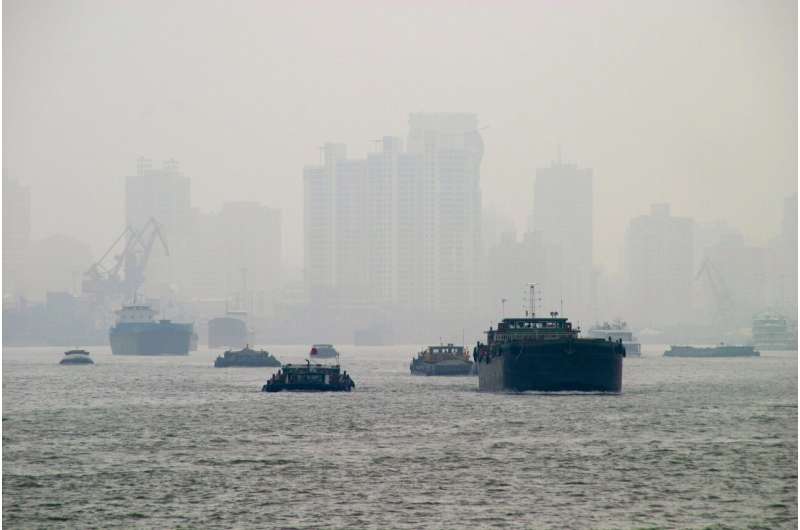
In some countries, including the United States, socioeconomic factors such as higher income and education correlate with less exposure to outdoor air pollution. But this isn’t the case in China. In fact, it’s the exact opposite.
For the first time, a University of Washington led team has uncovered that people living in China who have a higher socioeconomic status are actually more exposed to outdoor air pollution, also known as ambient air pollution. This finding runs contrary to existing studies conducted throughout North America, which have shown that higher pollution levels tend to be experienced among people with lower socioeconomic status.
The findings were published June 8 in Environmental Health Perspectives.
“Environmental disparities reflect a location’s history, culture, economics and power dynamics,” said co-author Julian Marshall, UW professor of civil and environmental engineering. “Those factors differ between the U.S. and China, so we see different patterns in environmental inequalities.”
While disparities in ambient air pollution are well-studied between different countries, variations within-country have been poorly studied except for in a few high-income countries. China accounts for one-fourth of the total 4 million worldwide deaths per year attributed to ambient air pollution, which is associated with stroke, chronic respiratory diseases and lung cancer.
The researchers investigated ambient nitrogen dioxide (NO2) and fine particulate matter (PM2.5) concentrations. The team selected these pollutants because they are widely tracked and have health effects associated with exposures. Also, estimates of pollution levels are newly available at small-scale spatial resolution (1 kilometer).
The researchers combined estimated annual average ambient levels of these pollutants for the year 2015 with national demographic information, which included socioeconomic status factors, such as income and education levels. The team also considered factors such as rural-to-urban migration and minority status. The researchers compared their results using multiple approaches to measuring socioeconomic status, including individual and community-averaged scores.
To their surprise, the researchers found that ambient NO2 and PM2.5 levels were greater for higher-socioeconomic-status populations. They also found higher socioeconomic status for long-standing urban residents compared to rural-to-urban migrant populations, as well as higher socioeconomic status for the majority ethnic group than for the average across nine minority groups.
The team speculates that the varying correlations between socioeconomic status and ambient air pollution may be due to a variety of factors, including unique economic, urbanization and industrialization characteristics in the countries. As the world’s largest developing economy, China has, in recent decades, experienced rapid urbanization with widespread rural-to-urban migration.
In China, many people have relocated to cities in recent years to work in the manufacturing industry, which makes up a significant portion of China’s gross domestic product. These jobs tend to be higher-paying on average, which has increased income disparities. With people inclined to live closer to their workplace, they are exposed to higher air pollution levels associated with the manufacturing industry. In comparison, environmental inequity patterns in the United States are generally explained in part by past and present racial discrimination. Low-socioeconomic-status communities in the United States often lack the financial means and political power to prevent sources of pollution, like highways and other undesirable land uses.
These findings may apply to other countries, the researchers said, particularly low- and middle-income countries that have seen economic development in recent decades.
“The patterns in China reflect that China’s economic development is positively related with both socioeconomic status and air pollution,” said lead author Yuzhou Wang, a UW doctoral student in the civil and environmental engineering department. “However, with further urbanization and economic reforms in China, the positive relationship between socioeconomic status and air pollution exposure may weaken or shift in the future.”
Ambient Air Pollution and Socioeconomic Status in China, Environmental Health Perspectives (2022). DOI: 10.1289/EHP9872. ehp.niehs.nih.gov/doi/10.1289/EHP9872
Citation:
Higher socioeconomic status linked to increased air pollution exposure in China (2022, June 8)
retrieved 8 June 2022
from https://medicalxpress.com/news/2022-06-higher-socioeconomic-status-linked-air.html
This document is subject to copyright. Apart from any fair dealing for the purpose of private study or research, no
part may be reproduced without the written permission. The content is provided for information purposes only.


